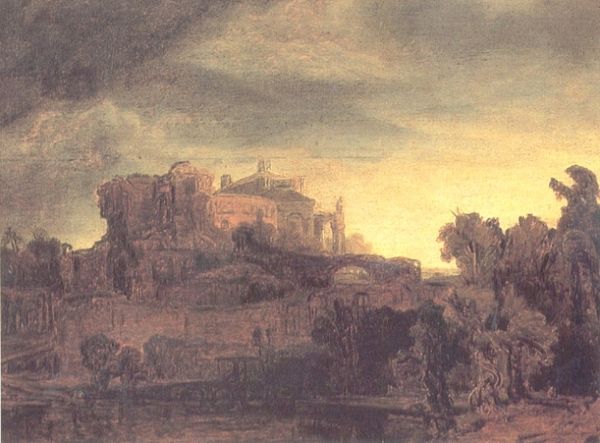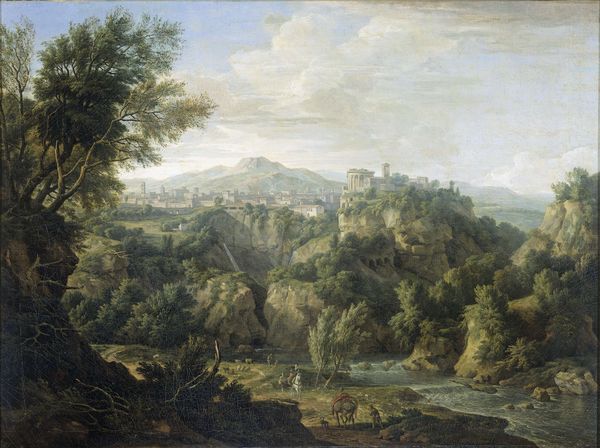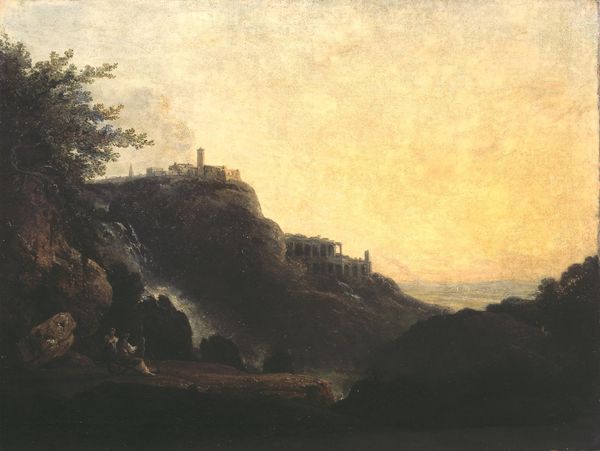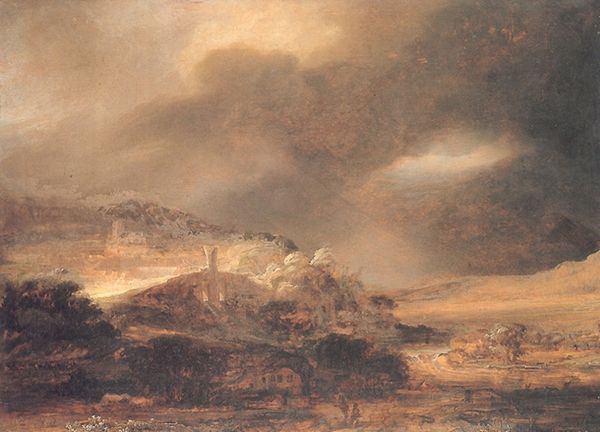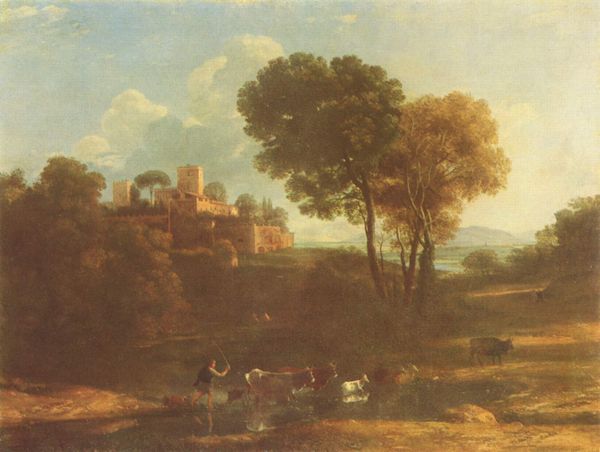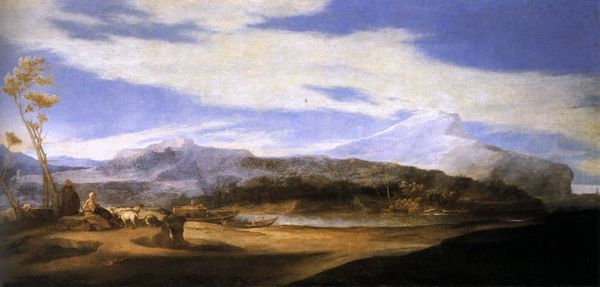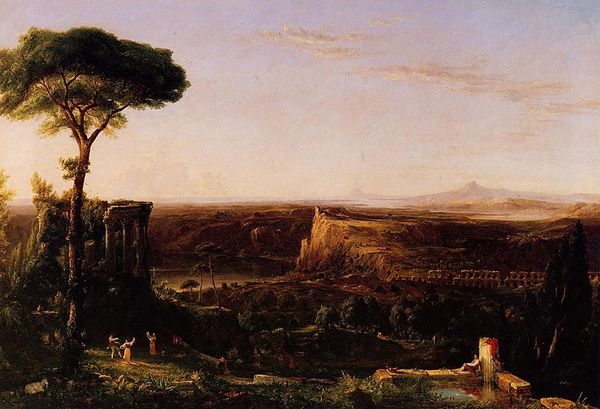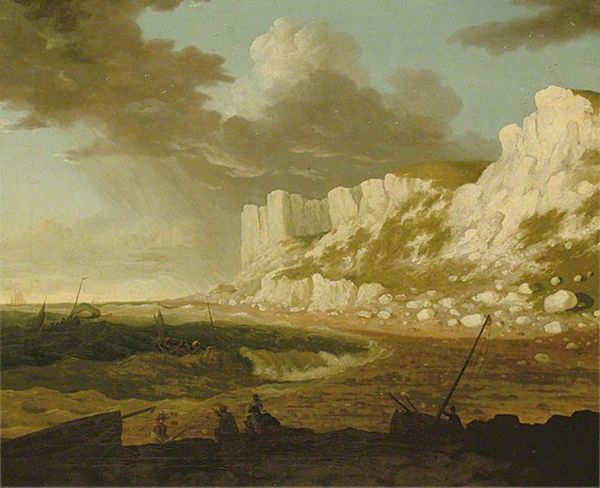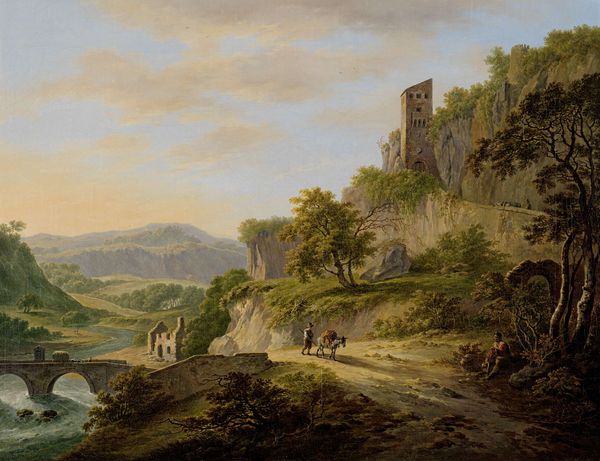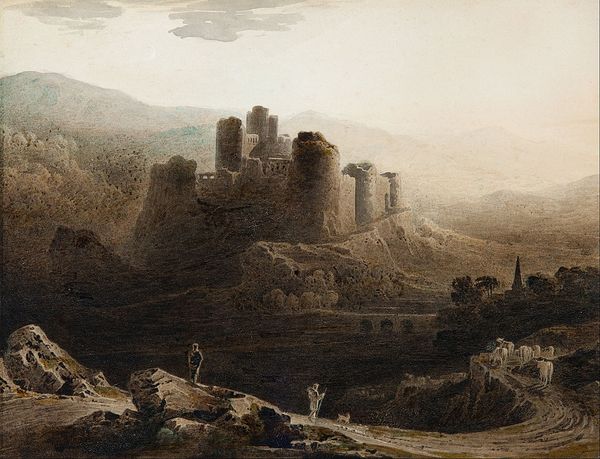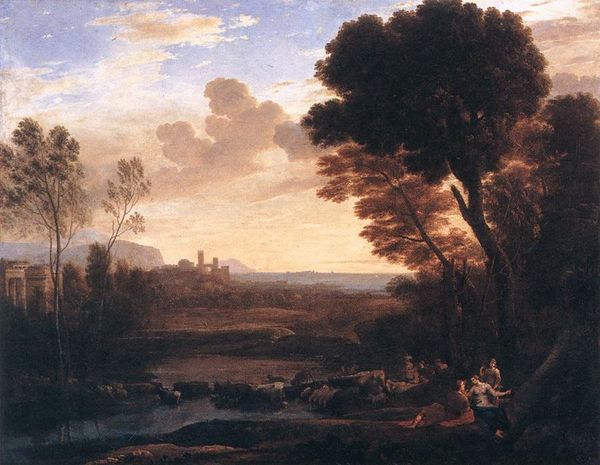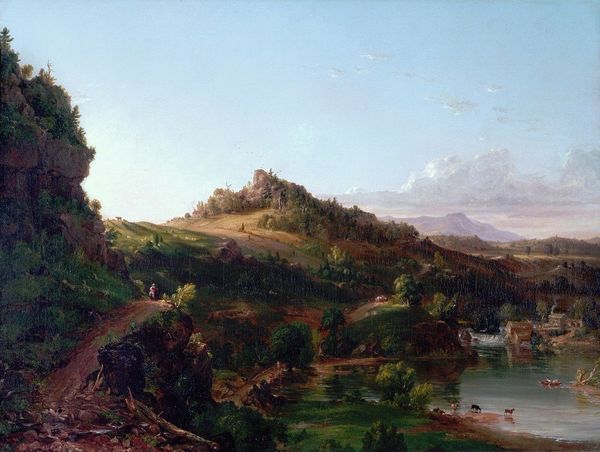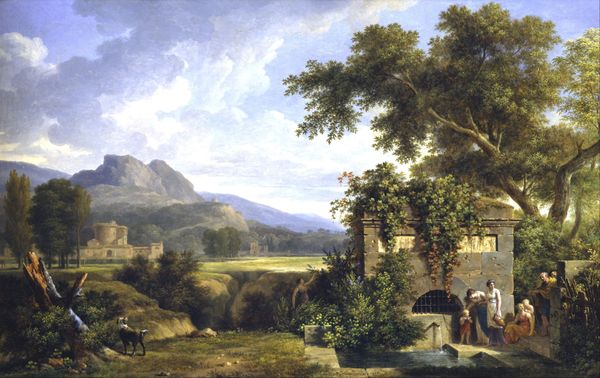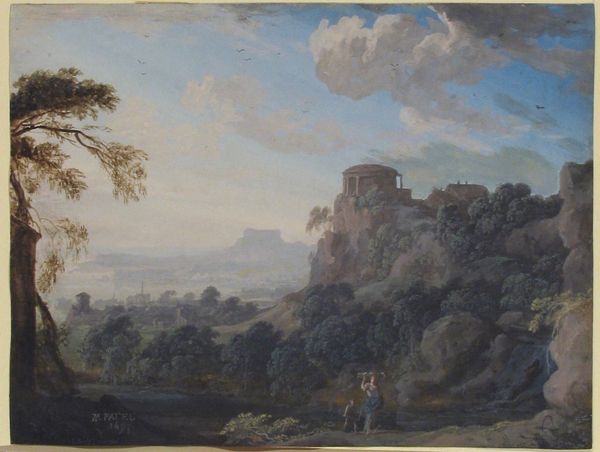
River Landscape with a Windmill 1640
0:00
0:00
rembrandtvanrijn
Gemäldegalerie Alte Meister, Dresden, Germany
oil-paint
#
sky
#
baroque
#
dutch-golden-age
#
oil-paint
#
landscape
#
oil painting
#
cloud
#
cityscape
#
realism
Copyright: Public domain
Editor: Rembrandt’s "River Landscape with a Windmill," created around 1640, really grabs your attention with its almost theatrical use of light. It’s painted in oil, and it has this hazy, dreamlike quality that I find both calming and slightly unsettling. What catches your eye about it? Curator: The dramatic sky certainly holds power, doesn’t it? Think of it as a mirror reflecting not just the landscape, but a collective mood. Windmills, bridges, humble dwellings, and lone figures – each carries historical and psychological weight. The river could represent time, flowing and constant. But what does the dramatic contrast of light and shadow tell us? Editor: Maybe the light is meant to offer hope? The scene seems rather somber. Curator: Or perhaps it suggests duality, the co-existence of opposing forces – serenity and turmoil, presence and absence? How does the windmill, specifically, contribute to your interpretation? Editor: I suppose I see it as a symbol of Dutch ingenuity and hard work… Maybe resilience in the face of whatever the storm clouds threaten? Curator: Precisely! And the horse and rider? What journey are they on, and how do they fit within this broader narrative? The small scale implies nature's dominance. Rembrandt's symbolism often touches on human endeavors dwarfed by greater forces. The decaying architecture and vibrant nature together could suggest nature's triumph over time. What did you learn? Editor: I see it all so differently now, all of these layers of possible meanings within what at first seemed a pretty landscape. It’s more complex than I thought.
Comments
No comments
Be the first to comment and join the conversation on the ultimate creative platform.
